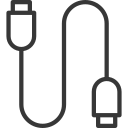
ALCOHOL ADDICTION TREATMENT
A TREATMENT CENTRE LIKE NO OTHER
ALCOHOL ADDICTION
Navigating the journey to sobriety can be challenging, but you’re not alone. At PROMIS Rehab, we provide the support and expertise to help you reclaim your life.

Comprehensive Approach
Evidence-based therapies supported by holistic interventions help you do the hard work of healing that sticks.

Cutting-Edge Technology
Go beyond traditional therapy with innovative tech to support your healing in both body and mind.

Trackable Outcomes
Top 5% of treatment outcomes, as measured against over 1 million lives. This can work for you too.

Expert Care Team
Learn from the best that treatment has to offer with our diverse and experienced integrated care team.
Understanding Alcohol Addiction
Alcohol addiction, also known as alcoholism or alcohol use disorder, is a complex and often misunderstood condition. It’s characterised by an uncontrollable urge to consume alcohol despite the negative consequences it may have on a person’s life, health, and relationships. Understanding this condition requires a multifaceted approach, considering its psychological, physical, and social dimensions. To fully comprehend the problem with alcohol, we must look at the nature of substance abuse and the factors and influences that contribute to its grip on individuals.
- Psychological Factors: Often, individuals turn to alcohol as a means to cope with stress, anxiety, or depression. Over time, this can lead to a dependency where alcohol becomes a necessary tool for dealing with daily life. Psychological factors such as trauma, low self-esteem, and mental health disorders can also contribute significantly to the development of alcohol addiction.
- Physical Dependence: Prolonged alcohol use can lead to physical dependence. This is characterised by the body’s adaptation to the presence of alcohol, leading to tolerance (needing more alcohol to achieve the same effect) and withdrawal when not drinking. These symptoms can range from mild anxiety and shakiness to severe complications like seizures.
- Genetic and Environmental Influences: Research suggests a genetic component to alcohol addiction, with some individuals being more predisposed due to their genetic makeup. Additionally, environmental factors such as family history, social circle, and cultural attitudes towards drinking play a crucial role.

SYMPTOMS OF ALCOHOL USE DISORDER
Addiction to alcohol is not always visible, however, there are usually telltale signs that can be recognised from certain behaviours and physical symptoms that stem from alcohol problems.
BEHAVIOURAL AND PSYCHOLOGICAL SYMPTOMS
- Uncontrolled Drinking: Drinking more or for a longer time than intended, and unsuccessful efforts to cut down or control alcohol use.
- Preoccupation with Alcohol: Spending a lot of time obtaining, using, or recovering from the effects of alcohol.
- Neglect of Activities: Giving up or reducing important social, occupational, or recreational activities because of alcohol use.
- Continued Use Despite Problems: Continuing to drink alcohol even though it’s causing trouble with family and friends or worsening a health problem.
- Tolerance: Needing more alcohol to achieve the same effect or finding that the usual number of drinks has less effect than before.
- Withdrawal: Experiencing symptoms of withdrawal like trouble sleeping, shakiness, irritability, anxiety, depression, restlessness, nausea, or sweating when the effects of alcohol wear off.

PHYSICAL SYMPTOMS
- Cravings: A strong desire or urge to use alcohol.
- Health Issues: Development or exacerbation of health problems related to alcohol use, such as liver disease, gastrointestinal issues, or cardiovascular problems.
- Impaired Coordination: Difficulty with coordination and motor functions, slurred speech.
- Blackouts: Experiencing periods of amnesia or memory loss due to heavy drinking.
Note that these are the most common signs of addiction however, people are diverse and addiction can affect them in many different ways. It’s important to recognise that not every individual will show these signs, with some people even managing daily obligations such as attending work. These are often referred to as functioning alcoholics and can sometimes be the most difficult cases when it comes to intervention or accessing treatment for alcohol.
PHYSICAL AND PSYCHOLOGICAL EFFECTS OF ALCOHOL ADDICTION
Excessive alcohol consumption can lead to many physical health issues, ranging from mild to life-threatening. Chronic drinkers often face liver damage, including fatty liver, hepatitis and cirrhosis. Alcohol addiction is also linked with gastric problems such as ulcers and pancreatitis, heart disease, high blood pressure and an increased risk for several types of cancer. Furthermore, long-term abuse may weaken the immune system, making individuals more susceptible to diseases like pneumonia.
In addition to physical complications, alcohol addiction has detrimental psychological effects that impact one’s mental well-being. It may cause or exacerbate mental health conditions like anxiety disorders or depression. The reliance on alcohol in dealing with stressors impairs problem-solving skills while hindering personal growth and self-esteem development.
Moreover, addiction can influence disrupted sleep patterns, leading to persistent insomnia, which further strains the individual’s capacity to cope with day-to-day challenges effectively.
Ultimately, the devastating consequences regarding both physical and psychological aspects of alcohol addiction demonstrate the need for timely intervention through professional treatment options such as rehab programmes or therapy sessions explicitly designed to overcome this dangerous dependence on alcohol.

DIFFERENCE BETWEEN ALCOHOL ADDICTION AND ALCOHOL ABUSE
Although alcohol abuse appears to fall into the same category as alcoholism, there are distinctions between the two. Alcohol abuse is closer to binge drinking and is considered to be the early stages of a full-blown addiction. Typically, those who abuse alcohol often encounter problems relating to their health through overconsumption and begin to neglect other aspects of their lives.
The main difference is that the condition has not fully developed into what is regarded as a mental reliance or a chemical dependency; however, this is not to say that it is not equally as dangerous.
Recognising the signs early is crucial. Opting for alcohol treatment at this stage can be a defining factor in recovery from alcohol and provides a much better foundation to finally stop drinking.
CHOOSING THE RIGHT ALCOHOL ADDICTION REHAB
Choosing the right path for a treatment programme will depend on various factors. People with alcohol issues must consider options and undertake a thorough evaluation to determine their best course of action. Here are some things to consider when choosing a treatment facility:
- The severity of the condition: This should be diagnosed by a healthcare professional to determine the most suitable option for treatment. In most cases, inpatient treatment will be required for those who experience extreme alcohol withdrawal and alcohol cravings.
- Location: Although this may seem unimportant, some addicts must consider the locality of the rehab. Ensuring a solid support system from friends and family can really help you recover from alcohol addiction.
- Treatment options: Not all rehabs are the same, and neither are substance conditions. Choosing the correct rehab entails searching the treatment options that are available and whether or not they suit your particular needs or requirements. Substance abuse and mental health go hand in hand; ensuring a treatment centre that provides both physical and mental health support is vital for the best chances of recovery.
- Commitments: General commitments or obligations are a huge factor. For some, a full-time residential rehab may not be the most suitable option; some may have work to attend, children to take to school, or other commitments that need to be fulfilled. Outpatient treatments or day centres offer treatment plans that allow more flexibility that can worked around to suit you.
DETOXIFICATION AND WITHDRAWAL MANAGEMENT
Detoxification and withdrawal management are typically the first steps in alcohol addiction treatment. The aim is to allow all the alcohol to leave the body and manage any associated withdrawal symptoms. Here are some important points to understand about these treatment options:
- Residential Detoxification is best delivered as a supervised process of allowing the body to eliminate alcohol from its system. It can take several days to complete, and patients may experience various physical and psychological side effects during this time.
- Withdrawal management involves observing the client closely so that the detox process can be managed safely. Symptoms can vary depending on the individual but can include seizures, tremors, anxiety, depression and insomnia.
- People often imagine that it must be drug addiction detoxes that carry the most significant risk to life in a clinic and are surprised to learn that for some vulnerable clients, it is an alcohol detox, which is one of the most dangerous to undergo.
- Detoxification and withdrawal often take place in an inpatient setting under medical supervision. This is because withdrawal symptoms can be severe or life-threatening, so it helps patients to have access to 24/7 medical care.
- Medications will be used as part of detoxification or withdrawal management to help ease symptoms or reduce cravings and reduce the risk of fitting.
- Choosing between inpatient or outpatient detoxification depends on factors such as the level of alcohol dependence, the severity of withdrawal symptoms, individual vulnerability and individual needs. For example, individuals with severe withdrawal symptoms may require inpatient detox, while those with less severe forms could opt for outpatient detox.
Detoxification and withdrawal management are crucial first steps when treating alcohol addiction. They must be correctly carried out with professional guidance so as not to cause more harm than good.
ALCOHOL ADDICTION TREATMENT AT PROMIS
Promis offer a wide range of services for those who struggle with alcoholism, regardless of what stage they’re at. Alcohol rehab treatment at our centres is personalised to suit each individual and tailored to their specific needs. Here are some of our programmes designed for people struggling with alcohol misuse and addiction.
INPATIENT REHAB
Our inpatient option provides full alcohol detox and rehabilitation services for those who need the most attention. 24/7 supervision is crucial for those who experience the worst side of alcohol withdrawal symptoms and require medical assistance. Although everyone is welcome to stay at our full-time rehab, we understand that an inpatient stay may not suit everyone.
OUTPATIENT REHAB
Our outpatient services are designed to cater for those who need a little more wiggle room to juggle between life obligations and recovery. We also offer a home detox option for those with less severe symptoms. However, we advise those with severe cases of alcoholism to get in touch and go through an assessment to determine their treatment for alcohol use disorder.
Whether opting for inpatient or outpatient treatment, Promis offers a multitude of services to reduce alcohol consumption and, eventually, stop altogether. We provide support groups, individual and group therapy, help with mental health, aftercare options and relapse prevention strategies so you can rest assured that treatment was the best choice you ever made.
CONTACT US TODAY AND GET HELP FOR ALCOHOLISM
If you or a loved one are struggling with addiction, call us today for an evaluation with one of our treatment specialists. We have over 25 years of experience in treating alcohol and substance use disorders – get alcohol addiction help today and begin the journey to sobriety with Promis.
FAQ
How long does it take to complete an alcohol rehabilitation program?
The length of time that it takes to complete an alcohol rehab program varies from one person to another. Some people may only need a few weeks or months, while others may require several years.
When should you consider going to Inpatient Alcohol Rehab?
Alcohol rehab is not for everyone. Some people may want to do it themselves and others might need help from professionals. The best time to consider going to alcohol rehab is when you have had strong urges or cravings for alcohol, and your drinking has been out of control.
What should you expect when going into an Alcohol Rehab?
A person who enters alcohol rehab will experience a lot of changes in their life. One change they may not expect is that the treatment centre takes away all access to drugs and alcohol for an extended period. This is the first step in the recovery process and it might be a shock to an individual who has been using drugs or alcohol for some time.
The most important thing people need to know before they enter rehab is what to expect. Some of the changes that people will experience in alcohol treatment include:
- They will be living away from their family for awhile
- They will be living with people who have a similar addiction or problem as them
- They will not be able to use drugs or alcohol for an extended period of time. This may seem like a punishment, but it is actually the first step in their recovery process.
- They will be required to attend meetings and therapy sessions where they can learn about drugs and alcohol addiction as well as how to cope with their addiction.
- They will be required to perform tasks and chores around the facility to help keep the facility running smoothly.
WHAT HAPPENS AFTER COMPLETING AN ALCOHOL REHAB PROGRAM?
The goal of alcohol rehab is to help people build healthier lives. One way professionals do this is by checking in with clients both before and after the program to see how they are doing. This service is often called aftercare or continuing care.
The staff at most rehab programs will provide clients with an assessment of their needs before they leave. They will also offer a variety of services to help clients stay on track after they leave the program, including referrals for further treatment and support groups.
- They will be living away from their family for awhile
- They will be living with people who have a similar addiction or problem as them
- They will not be able to use drugs or alcohol for an extended period of time. This may seem like a punishment, but it is actually the first step in their recovery process.
- They will be required to attend meetings and therapy sessions where they can learn about drugs and alcohol addiction as well as how to cope with their addiction.
- They will be required to perform tasks and chores around the facility to help keep the facility running smoothly.
